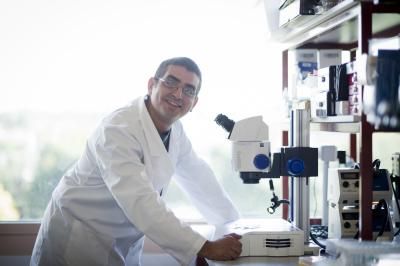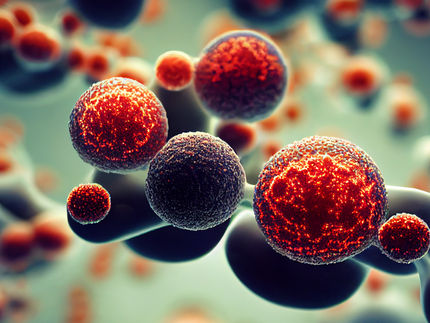Erg gene key to blood stem cell 'self-renewal'
Advertisement
Scientists from the Walter and Eliza Hall Institute have begun to unravel how blood stem cells regenerate themselves, identifying a key gene required for the process. The discovery that the Erg gene is vitally important to blood stem cells' unique ability to self-renew could give scientists new opportunities to use blood stem cells for tissue repair, transplantation and other therapeutic applications.

Dr. Samir Taoudi from the Walter and Eliza Hall Institute
Czesia Markiewicz, Walter and Eliza Hall Institute
Professor Doug Hilton, Dr Samir Taoudi and colleagues from the institute's Molecular Medicine and Cancer and Haematology divisions led the study. Dr Taoudi said the research aimed to understand how blood stem cells are made.
"One of the key features of blood stem cells, one that could be exploited for therapeutic use, is their ability to regenerate or renew themselves," Dr Taoudi said. "However, relatively little is known about how this occurs, or the molecular pathways that specifically control regeneration."
Blood stem cells are required to produce and maintain the blood system throughout an organism's lifetime. They are multipotent cells, meaning they are able to form any cell of the blood system (but not other cells), and they self-renew, so they are a source of endless supply. However, one major barrier to their therapeutic use is that the cells can only be isolated in numbers too low for practical use and efforts to expand the number of cells often causes them to turn into more mature cells.
"At the moment, if you take stem cells from a person and try to expand them, many of the stem cells lose their ability to regenerate," Dr Taoudi said. "The practical aim of our research is to find ways in which you could take stem cells collected from bone marrow or cord blood and 'switch on' expression of particular sets of genes, encouraging the stem cells to expand, essentially creating your own endless supply of blood stem cells."
Institute researchers had previously discovered that ERG was vital for the proper function of adult blood stem cells. They decided to look at blood stem cells in a developing embryo, a time when the cells are particularly active, to determine ERG's role in stem cell production and maintenance.
"We found that during development, ERG was not needed for the original blood stem cells to be made, or to produce mature blood cells," Dr Taoudi said. "But without ERG, these new blood stem cells rapidly decreased as they divided to produce more blood, so that they were almost completely exhausted by the time the mouse was born."
Further testing revealed that two other genes important in embryonic development, GATA2 and RUNX1, were controlled by ERG at the blood producing stage of development.


























































